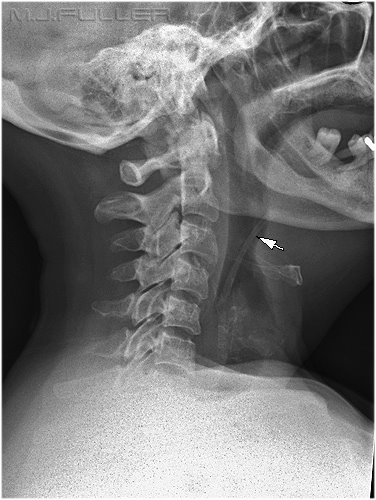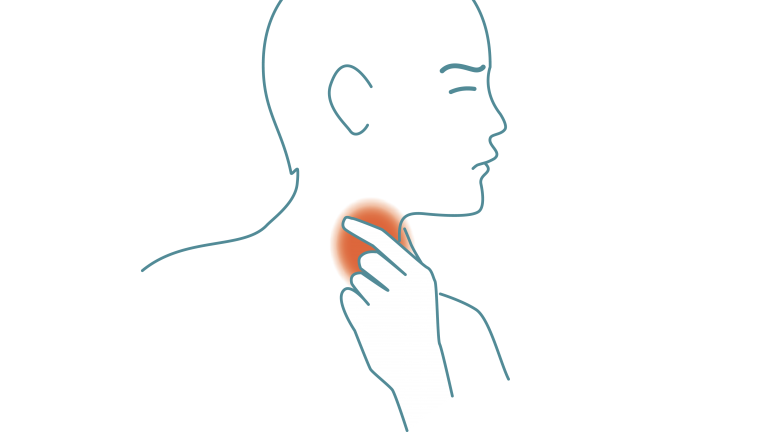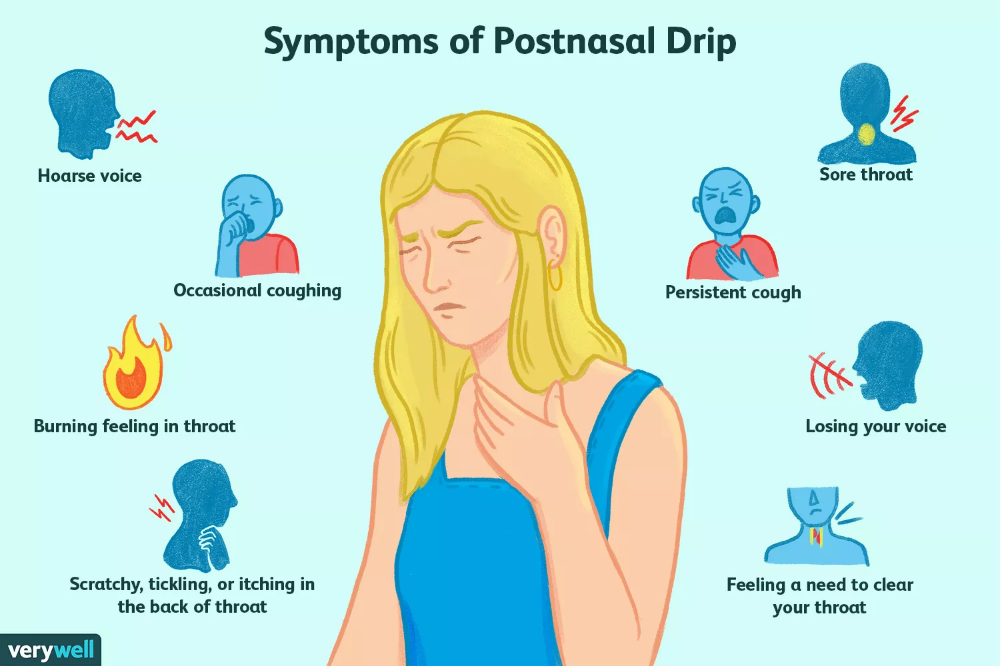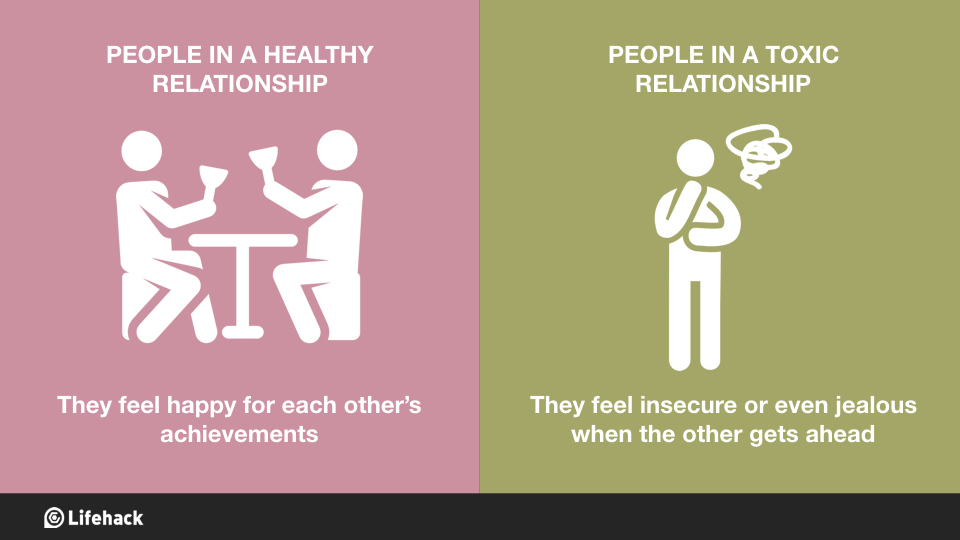Fullness in the throat
That Lump-in-Throat Feeling: Is It Globus Sensation or Something Else?
Ever feel like there is something lodged in your throat — even though you know there isn’t? Not only is it uncomfortable, but it can also be a little scary. However, it’s relatively common, and it’s probably a case of globus sensation, or globus pharyngeus.
What Is Globus Sensation?
Also called globus pharyngeus, globus sensation is the feeling of being unable to remove a lump from your throat, or the sensation that there’s a pill stuck there. Unlike some other throat issues, there’s no actual obstruction with globus pharyngeus.
Although globus sensation isn’t painful, it can be annoying — and disconcerting.
What Causes Globus Sensation?Once upon a time, this condition was called globus hystericus, because doctors as far back as Hippocrates thought that people who experienced it were “hysterical.”
Doctors now understand more about the causes of globus sensation, which can be both psychological and physical, and that the symptoms are very real.
The most common causes of globus pharyngeus are anxiety and gastroesophageal reflux disease (GERD), a form of acid reflux that causes the stomach’s contents to travel back up the food pipe and sometimes into the throat.
This can result in muscle spasms that trigger feelings of an object caught in the throat.
Other causes include:
- Minor inflammation in the throat or at the back of the mouth
- Psychological health issues or mood changes
- Swallowing disorders
Globus sensation usually disappears on its own over time, but you should seek medical advice if the condition is accompanied by any of the following symptoms:
- Pain in the throat or neck
- Weight loss
- Vomiting
- Difficulty swallowing
- Pain during swallowing
- Choking when swallowing
- Muscle weakness in the throat or elsewhere in the body
- A mass that can be seen or felt in or around the neck or throat
It’s also time to call the doctor if your symptoms get progressively worse, or you’re over the age of 50, if you have a history of smoking or frequent alcohol use and symptoms come on suddenly.
Treatment for Globus Sensation
There’s no specific treatment for globus pharyngeus,butit’s controllable. Our experts recommend changes to medications that may cause dry mouth or changes in lifestyle to reduce anxiety.
When globus sensation is the result of another medical condition, treating that condition will also alleviate globus pharyngeus. For example, antacids may help with globus sensation related to GERD.
What Else Could Be Growing in Your Throat?
The short answer? It could be a lot of things, including normal bacteria. But if you know your body and you know something isn’t right — and it’s not just that lump-in-throat sensation — then let us help you troubleshoot.
Could It Be Strep or Mono?Does it hurt to swallow? Have you had a sore throat for a few days? Is your throat red, or do you have white spots on your tonsils? Then you may have strep throat or mononucleosis (mono).
Strep ThroatStrep is a bacterial infection of the throat, usually when streptococcus bacteria grow on your tonsils.
In addition to moderate to severe sore throat and pain with swallowing (odynophagia), you may have swollen lymph nodes and a fever. Your tonsils may have a white spotty appearance, or they could be red and swollen.
You can catch strep by sharing saliva, utensils, or drinking glasses. If you’re worried you have it, head to GoHealth Urgent Care for a rapid test.
The results are available in less than 10 minutes, and the doctor can prescribe penicillin or other antibiotics for treatment.
MononucleosisCaused by the Epstein-Barr virus (EBV) and caught from someone else who has it, mono can look and feel very much like strep throat.
Your tonsils can be red or swollen, or they can have a whitish appearance.
At GoHealth Urgent Care, we can run a rapid test for mono. Because it’s caused by a virus, antibiotics won’t treat it.
But it’s important to know if you have mono because there are other health risks associated with it.
Could It Be an STD?Yes, STDs do occur in the throat — most commonly gonorrhea.
Symptoms of gonorrhea can include severe sore throat; red, swollen tonsils; and sores of the mouth.
Another possibility is a herpes infection of the mouth and throat.
At GoHealth Urgent Care, we can test for both and prescribe the appropriate antibiotics if needed. If you suspect one of these is the cause of your sore throat, you should limit your sexual activity until you see a doctor.
Could It Be Cancer?Unfortunately, yes.
However, cancer of the mouth and throat typically occurs in those who have risk factors such as use of tobacco products (cigarettes, cigars, or chewing tobacco), heavy alcohol use, or a history of radiation exposure.
In some cases, however, you can get cancer without risk factors.
It’s important to seek medical attention if you have a sore in your mouth that won’t heal; a sensation of something stuck in your throat; or fevers, night sweats, or weight loss.
A GoHealth Urgent Care provider can evaluate you and, if necessary, refer you to a specialist through our connected system.
Could It Be Something Else?
It sure could! If you don’t know what’s ailing you, then let the experts at GoHealth Urgent Care help with your diagnosis.
We’re here seven days a week, 365 days a year, and you can walk in or save your spot online.
See our prices on co-pays and same-day visits, with and without insurance.
GoHealth Urgent Care partners with these regional healthcare providers:
- Northwell Health-GoHealth Urgent Care in New York
- Dignity Health-GoHealth Urgent Care in San Francisco
- Legacy-GoHealth Urgent Care in Portland & Vancouver
- Hartford HealthCare-GoHealth Urgent Care in Connecticut
- Mercy-GoHealth Urgent Care in Arkansas, Springfield, St. Louis & Oklahoma
- Novant Health-GoHealth Urgent Care in North Carolina
Here's What Causes a Lump in Your Throat and How to Treat It
We include products we think are useful for our readers. If you buy through links on this page, we may earn a small commission. Here’s our process.
If you buy through links on this page, we may earn a small commission. Here’s our process.
Feeling a lump in your throat is not uncommon. Many people experience this painless sensation at least once in their lifetime. Some people describe it as feeling like there is something stuck in their throat, but they can still eat and drink.
Feeling a lump, bump, or swelling in your throat without having an actual lump is known as globus sensation.
The most important thing that sets globus sensation apart from other potential causes is its impact on swallowing. If you have difficulty swallowing, you may be experiencing another, more serious issue.
If you experience this sensation but have no difficulty swallowing, you’re likely experiencing the common globus sensation.
Learn more about what causes a lump in your throat, when it’s a sign of something more serious, and what you can do to ease it.
Doctors and researchers are not quite sure what causes this condition. It can impact people of any age or sex, and it may come and go throughout your life.
It can impact people of any age or sex, and it may come and go throughout your life.
Other common conditions that can cause a feeling of a lump in your throat include:
Muscle tension
When they’re not in use for talking or swallowing, throat muscles are often relaxed. However, if they do not relax correctly, you may feel more tension than usual. This can sometimes feel like a lump or bump in your throat.
Acid reflux
Stomach acid entering your esophagus can cause a feeling of muscle tension or swelling in your throat’s tissues. This may feel like a lump or blockage in your throat.
It’s also possible for reflux to push up into the larynx and pharynx, which can also create the globus sensation.
Postnasal drip
Excess mucus from the nose and sinuses can accumulate in the back of your throat. This is known as postnasal drip. As it slides down your throat, it can cause a lump-like feeling by causing an increase in sensitivity.
Emotional reactions
Stress, grief, anxiety, and pride are intense emotions that may trigger globus sensation. They can also make the feeling worse. Extreme fatigue may also cause this feeling.
They can also make the feeling worse. Extreme fatigue may also cause this feeling.
It’s important to know that globus sensation is not dangerous, and it does not cause additional complications. That means contacting a doctor is often unnecessary.
However, this sensation can be confused with other disorders that do need a doctor’s attention. You should call a doctor within a few days if you continue to experience the lump in your throat or if you develop other symptoms.
For example, difficulty swallowing can be a sign of a larger problem and should be addressed immediately.
Seeing an ENT specialist
If you’re unsure of your symptoms and would like a clear diagnosis, make an appointment with a doctor. They may refer you to an otolaryngologist, or an ear, nose, and throat (ENT) specialist.
This doctor will examine your mouth, nose, and throat. They will pass a flexible, ultrathin telescope with a light through your nose to see inside your sinuses and down into your throat
This examination may not confirm a globus sensation diagnosis. What it can do is offer another explanation for your symptoms. For example, if acid reflux is suspected, additional testing may be done to confirm that diagnosis.
What it can do is offer another explanation for your symptoms. For example, if acid reflux is suspected, additional testing may be done to confirm that diagnosis.
Globus sensation is benign. That means it’s not a serious condition and will not result in more serious complications.
However, some conditions may mimic globus sensation at first. In other words, the first symptoms may seem like globus sensation, but additional symptoms will appear eventually.
You should pay attention to additional symptoms that may pop up if you experience a lump in your throat occasionally. In most cases, a globus sensation is a sign of nothing serious, but being alert to changes can help you catch other possible problems early.
These symptoms include:
- pain
- difficulty swallowing or choking
- a lump or mass that can be seen or felt
- a fever
- weight loss
- muscle weakness
Globus sensation has no treatment. That’s because doctors and researchers are not sure what causes it, and in most people, the sensation goes away quickly.
But it’s important to know that if you experience this sensation from time to time, you’re not alone. This is a very common feeling, and it is not a sign of a more serious problem.
Some of the causes of the lump-in-throat feeling are treatable. If a doctor discovers that one of these conditions is responsible for your globus sensation, treatment may help ease the feeling.
Treatment for some common causes of feeling a lump in your throat include:
Muscle therapy
If muscle tension is causing the feeling, a doctor may refer you to a speech pathologist or physical therapist to learn how to ease the tightness when it occurs.
Nasal spray
The most common treatment for postnasal drip is a nasal spray.
Some other treatments include drinking plenty of fluid to keep the secretions thin and mobile. Over-the-counter (OTC) decongestants may also help remove the buildup and eliminate the drip.
Therapy
Depression, anxiety, grief, and other mental health issues can sometimes temporarily cause globus sensation. Talk therapy or treatment with antidepressants may help treat the underlying issues that lead to this feeling.
Talk therapy or treatment with antidepressants may help treat the underlying issues that lead to this feeling.
Antacids
Both OTC antacids and prescription reflux medications can help ease acid reflux. When this is treated, the sensation in your throat should ease.
Eating
Simply chewing and swallowing food may be all you need to ease the feeling. Swallowing saliva may cause you to feel a lump in your throat, but swallowing food may ease it.
Because researchers do not know what causes globus sensation, it’s difficult to understand how to prevent it. Because of this, the best course of action is to take care of your throat as well as you can.
Follow these healthy throat tips to prevent possible issues with either globus sensation or other causes of having a lump in your throat:
Drink plenty of water
Staying hydrated is good for more than your skin. It keeps fluids and secretions throughout your body moving properly.
Quit smoking
Your throat, sinuses, and mouth are greatly impacted if you use cigarettes and tobacco. Using any of these products increases your risk for many conditions, including cancer.
Using any of these products increases your risk for many conditions, including cancer.
Rest your voice when you’re sick
When you have a cold or something more serious like laryngitis, rest your throat. The muscles inside your throat are already inflamed and sore from the illness. Using them too much can cause irreversible damage.
Employ lifestyle habits to avoid reflux
If the lump-in-throat sensation is caused by acid reflux, a few lifestyle habits may help ease the sensation. These habits include:
- waiting at least 3 hours to lie down after eating
- limiting or avoiding trigger foods, such as spicy or high fat foods
- losing weight if your doctor has recommended it
Globus sensation can feel a little odd when it occurs, but for the most part, it’s a benign condition and there’s no need to worry.
However, if you find yourself feeling like there’s a lump in your throat often and it’s accompanied by other symptoms, such as difficulty swallowing, pain, or a fever, it’s important to talk with a doctor immediately.
Pharyngitis, a description of the disease on the portal Medihost.ru
Pharyngitis is an inflammatory disease of the pharynx, occurring with damage to the mucous membrane and regional lymph nodes. Most often it has an infectious origin. Sometimes the development of pharyngitis is facilitated by various professions (teacher, singer, announcer).
Causes
- Upper respiratory infections
- Fungus
- Bacterial flora
- Allergies
- Injuries
- Frequent colds
- Decreased immunity
- Stress
- Professional features
- Chronic and acute tonsillitis
Symptoms
There are several forms of pharyngitis - hypertrophy, catarrhal, catarrhal. Symptoms of pharyngitis are varied and polymorphic, but a characteristic symptom in all forms of pharyngitis is pain and discomfort when swallowing. Patients may complain of dryness and burning, itching, tickling in the throat, sensation of a foreign body - a lump in the throat. With acute pharyngitis, symptoms of fever, headache, weakness, malaise, muscle pain may appear, the temperature usually rises very slightly. With purulent and catarrhal tonsillitis, the same symptoms appear, but with a more pronounced pain syndrome. When examining the oral cavity - the back wall of the pharynx is hyperemic, edematous, the follicles of the lymphoid tissue are enlarged. If a sore throat is accompanied by a cough, there may also be dilated blood vessels on the back wall due to a strained cough.
With acute pharyngitis, symptoms of fever, headache, weakness, malaise, muscle pain may appear, the temperature usually rises very slightly. With purulent and catarrhal tonsillitis, the same symptoms appear, but with a more pronounced pain syndrome. When examining the oral cavity - the back wall of the pharynx is hyperemic, edematous, the follicles of the lymphoid tissue are enlarged. If a sore throat is accompanied by a cough, there may also be dilated blood vessels on the back wall due to a strained cough.
Diagnostics
- 9000 , is aimed at reducing the symptoms of intoxication, the inflammatory process in the pharynx, pain syndrome and eliminating the cause - antiviral treatment, taking antibiotics, immunomodulators and vitamin therapy. The patient is shown a voice mode - a ban on talking for five days. Rinses of the oral cavity with antiseptic solutions are prescribed, irrigation with aerosols with an analgesic effect (Gexoral, Stopangin), antihistamines are prescribed for allergic pharyngitis.
- tonsillitis (sore throat)
- peritonosyllar, replacement abscess
- otitis media - inflammation of the middle ear
- phlegmon
- regional lymphadenitis 9000
- Rheumatoid arthritis
- Glomerulonephritis
- Hardening of the body
- Refusal of bad habits
- Prevention to receiving immunomodulators
- Air moisturizing in the premises, regular moist cleaning
- Carious teeth rehabilitation
- Treatment of chronic foci of infection

Chronic pharyngitis requires sanitation of chronic foci of infection, treatment of the underlying disease. With hyperplasia of the pharyngeal mucosa, cauterization, cryodestruction or laser coagulation is necessary.
In atrophic pharyngitis, the treatment is also symptomatic, aimed at moisturizing the mucous membrane with Lugol's solution, using alkaline and oil inhalations, diagnosing the endocrinological status - with this type of pharyngitis, hormonal disorders are possible.
Diet therapy is also prescribed during the acute period - the patient is forbidden everything spicy, hot, pickled. Food should be chemically and mechanically gentle, the use of coarse unprocessed food is excluded. Smoked meats and cold foods are also excluded - ice cream, soda, teas. Products should be rich in vitamins A and E. Drinking alcohol and smoking cigarettes is strictly prohibited. The patient is allowed to drink plenty of water (temperature 38-40 degrees) - compotes, fruit drinks. You can make a warm compress on the throat, tie a scarf.
You can make a warm compress on the throat, tie a scarf.
complications
Prevention
9000
according to estimated
? — ZdorovyeInfo
Home New Is there hereditary fullness?
My grandmother was overweight, and so was my mother, and my elder sister… Does this mean that you will never become slim? Well, of course not!
There are no fullness genes?
There are as many as 200 pieces. Only these are not obesity genes, but genes that are "associated with obesity." That is, they can become one of the causes of excess weight. Or maybe not - it all depends on you. Studies show that a balanced diet and physical activity equally help both the carriers of these genes and everyone else.
Only these are not obesity genes, but genes that are "associated with obesity." That is, they can become one of the causes of excess weight. Or maybe not - it all depends on you. Studies show that a balanced diet and physical activity equally help both the carriers of these genes and everyone else.
The influence of heredity on health in general is often overestimated: according to WHO, his condition is 50% dependent on lifestyle and only 30% on genetics. The remaining percentage falls on ecology and medical help .
Don't children "inherit" their parents' extra weight?
Yes, if one parent is overweight, there is a 50% chance that the child will be overweight. If both, then the "chance" of obesity can reach up to 80%. It's not just the genes that are to blame. The dependence of the weight of the offspring on the weight of the father and mother can be traced even in foster children.
The fact is that the nutrition of the child is completely dependent on the parents. Eating habits are laid down in the family for life.
Eating habits are laid down in the family for life.
For example: mother constantly scolds her son for being slow and makes him eat dinner as quickly as possible. Because of this, the boy overeats all the time - because the brain does not have time to receive a signal that the stomach is already full.
Or the classic: “If you don't eat enough, you won't grow up. Come on, eat your soup! How do you not want it? Soup must be eaten, otherwise the stomach will hurt! And the poor child gets used to eating, even when he doesn't feel like it.
So it turns out that all "hereditary fullness" is a matter of wrong habits. Get rid of them - get rid of excess weight.
But my friend eats everything and doesn't get fat. And I get better with every candy!
An inherited slow metabolism is not yet a death sentence. When scientists examined people with obesity, bad genes were found in 62-63% of patients. And an excess of calories in the diet - in 97%! It turns out that in any case, a person gets fat when he overeats.














